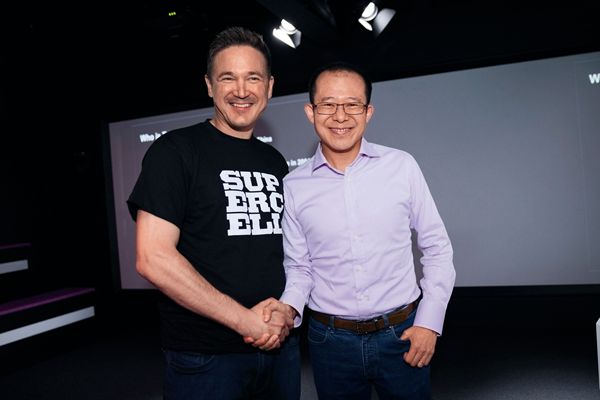Private Enterprises Are Global Investors
China Today by Liu Shaohua & Lei Gongming, December 20, 2016 Adjust font size:
Surging Investment in “Belt and Road” Countries
Ernst & Young Global Limited (EY) recently released Going Out: the Global Dream of a Manufacturing Power – 2016 China Outbound Investment Outlook, which intimated that China’s outbound investment will likely hit another historical high. National strategies such as the “Belt and Road” and “Made in China 2025” have gradually come into effect under the “Go Global” policy. China’s outbound investment is hence expected to grow by more than 10 percent, and maintain sustainable high growth for the next five years.
The first-ever freight train set out from Yiwu in Zhejiang Province to Afghanistan, carrying 100 containers of goods, on August 28. This marked the fifth cargo train route linking Yiwu to the world. The other four include that from Yiwu to five countries in Central Asia since April 23, 2013; the Yiwu-Madrid line since November 18, 2014; the Yiwu-Teheran line since January 28, 2016; and the Yiwu-Russia line since August 13, 2016.
China-Europe cargo lines serve as a springboard for Zhejiang’s privately run enterprises’ exploration of the markets in countries along the Belt and Road. Bao Weidong, vice director of the Yiwu Bureau of Land Port Affairs and Management, declared that cooperation will extend to wherever the trains go.
In March, 2016, Yiwu Small Commodities Market saw the opening of its first overseas market in Warsaw, Poland, a stop along the Yiwu-Xinjiang-Europe Railway. Private enterprises in Yiwu have moreover established 22 overseas warehouses in cities such as Moscow, Madrid, Lisbon, Cape Town, and Sydney.
Implementation of the Belt and Road Initiative has thus encouraged more and more Chinese private enterprises to go global.
In 2016, the Sichuan provincial government launched the “1,000 enterprises travelling along the Silk Road” program, with the aim of promoting market development and investment cooperation in such regions as the Middle East, Eastern Europe, Africa, South Asia, and the ASEAN region. “Around 700 of our enterprises, almost all of them privately owned, are making investments overseas,” head of Sichuan Provincial Department of Commerce Xie Kaihua said.
The Sichuan provincial government plans to implement 30 key projects to improve collaboration in international production capacity. It will also establish three overseas demonstration bases for overseas trade and economic cooperation which are expected to generate total export and import volumes exceeding US $3 billion.

Martin Lau, president of Tencent, with Ilkka Paananen, co-founder and CEO of Finnish game company Supercell, in Helsinki on June 21, 2016. Tencent announced that it will gain a stake of up to 84.3 percent in Supercell from Japan’s SoftBank.
Many private enterprises have shown great interest in countries along the Belt and Road.
“Southeast Asia holds a strategic position in the Belt and Road Initiative, and supportive government policies have encouraged us to ‘go out’ and invest in Laos,” Chairman of Guangyao Dongfang Group Li Guibin said. This commercial real estate company has been making investments in Laos since 2010, in the fields of electric power, mining, and industry, evident, for example, in implementation of a hydroelectric project in Lamphun and of an iron deposits project in Phalek.
The Tsingshan Holding Group, a private ferrous metal and stainless steel production enterprise in Zhejiang Province, has also stepped up its going global efforts. The company has purchased nickel resources in Indonesia, obtained mining rights for chrome ore mines in Zimbabwe, and established factories in the United States.
“Every move the company has made closely relates to the national strategy and structural transformation of China’s economy,” Chairman of Tsingshan Holding Group Xiang Guangda said.
The Tsingshan international investment roadmap echoes the choice of a substantial number of private enterprises in China that are making exploratory forays into the global market.